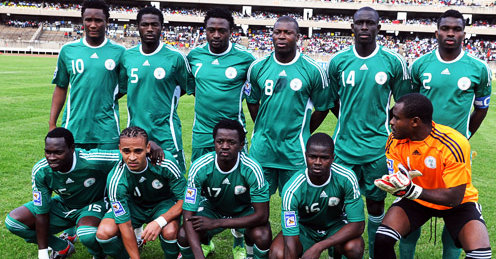
European clubs own more than 80 percent of Africa’s World Cup players. Final squad lists show that 112 of the 138 players are based in Europe and one in Asia (Qatar). Nigeria’s entire team is made up of players competing in nine different European countries!
Let’s break down the rest. Ivory Coast: 22 out of 23 (in 11 European countries); Cameroon: 22 out of 23 (9 countries); Algeria: 20 out of 23 (9 countries); Ghana: 19 out of 23 (9 countries); South Africa: 7 out of 23 (5 countries). The Big 5 leagues — England, Spain, Italy, Germany and France – capture the lion’s share of Africa’s World Cup players, 70 percent to be precise.
South Africa represents an anomaly due to its well-endowed Premier Soccer League, ranked in the Top 10 of the world’s richest leagues. If we were to take South Africa’s team members out of the equation, then 93 percent of Africans in this year’s World Cup are based in overseas clubs. And five of the nine players still playing club football in Africa are goalkeepers.
‘After the flight of brains Africa is confronted with the muscle exodus,’ noted Issa Hayatou, President of CAF. ‘The rich countries import the raw material — talent — and they often send to the continent their less valuable technicians. The inequality of the exchange terms is indisputable. It creates a situation of dependence and the impoverishment of some clubs . . . and of national championships.’ Paradoxically, the more African superstars like Drogba shine in Europe’s elite leagues, the more likely everyday football on African soil will suffer.
Categories
4 replies on “African World Cup Squads Reveal Euro Domination”
“Paradoxically, the more African superstars like Drogba shine in Europe’s elite leagues, the more likely everyday football on African soil will suffer.”
It is a major concern for the health of the game in Sub Saharan. The visible gain in competitiveness provide by African players in Europe provide to their national teams seems to have reached its limit. How long can the tree mask the increasingly unappealing and unattended African football played everyday at home?
Very true, the Euro-African exchange of football labour is unequal, there are many paradoxes involved, for instance, Michael Essien is not playing for Ghana because of injuries incurred in his bulwark role at Chelsea, the other African stars like Drogba, Eto’o and Pienaar might not play to their maximun potential because of the fatique that comes with playing in Europe! Unless the imbalance is addressed African teams will always find it hard to do well in the World Cup.
The Brazilian web site http://www.estadao.com.br/ has a stunning graphic rendition of where the 736 players on World Cup squads play their club football:
http://www.estadao.com.br/especiais/2010/06/copa_jogadores.shtm
Note how 59.9% of all 2010 WC players are based in clubs outside their home country. So Africa’s 81 percent is well above the norm, and that’s including South Africa’s unusual case mentioned in my post.
Peter
[…] the flight of brains, Africa is confronted with the muscle exodus,” he once said. “The rich countries import the raw material — talent — and they often send […]